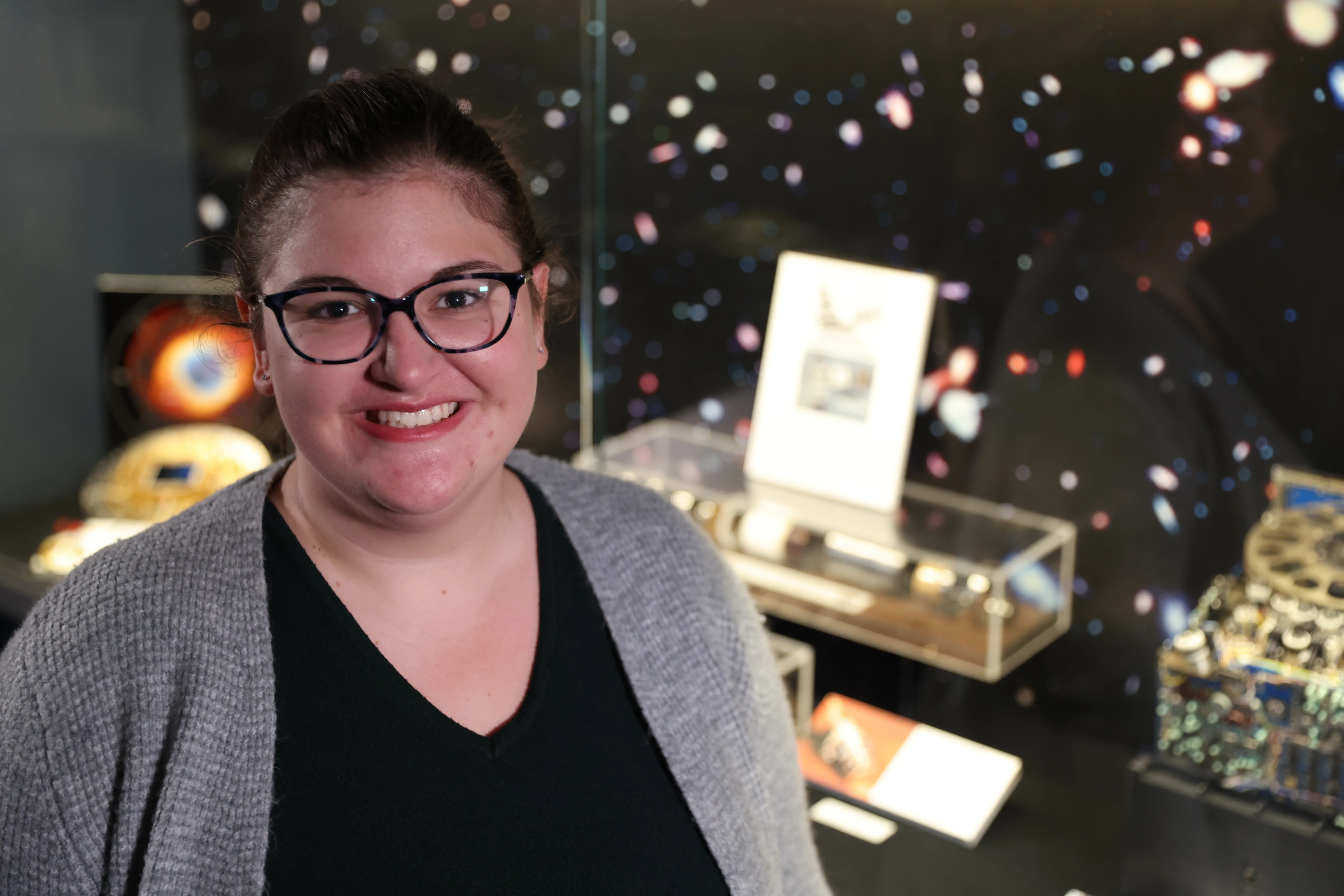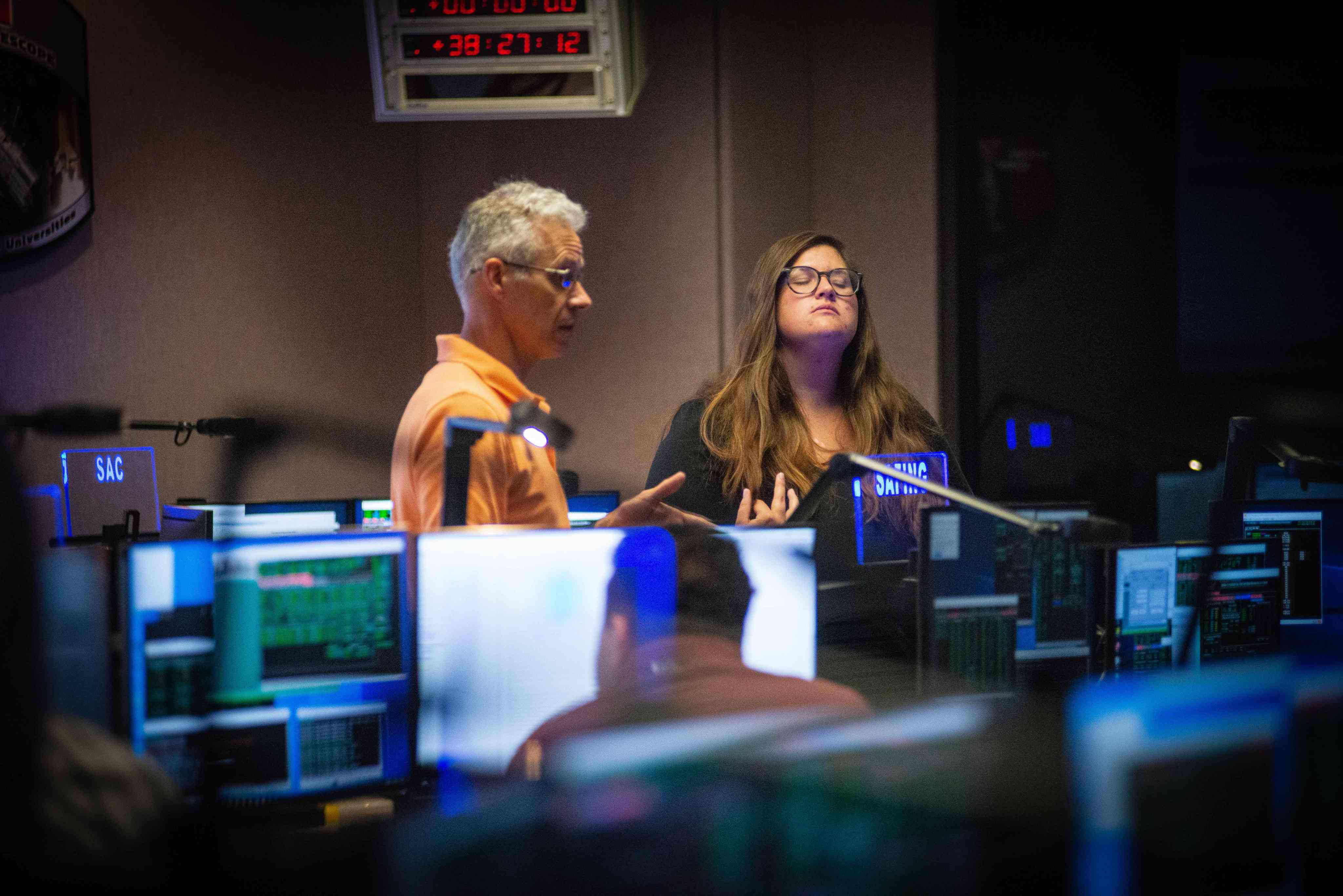
Hannah Daelemans
System Engineer
Hannah Daelemans remembers eyeing a recreation of Leonardo DaVinci’s flying machine at a museum as a child. “I was absolutely convinced it would work,” she recalled. “If I could go in there and take it outside, I could make it work. I found it very annoying that I wasn’t allowed to do that.”
Today Hannah is responsible for ensuring another famous machine stays skybound. As a system engineer for the Hubble Space Telescope, she monitors the fine guidance sensors that assist in pointing the spacecraft. The sensors find and lock onto guide stars to make sure the telescope is accurately looking at an astronomical object and remains steady while collecting data. Hannah keeps an eye on that part of the telescope’s performance to try to catch issues early and helps formulate solutions to problems, or anomalies, when they occur.
“I used to think that the hardest thing a person could do would be to design or operate vehicles in space,” she said. “I’ve come to realize that it’s not the hardest thing, but it is the coolest thing. It’s not rocket science, but it sure is fun.”
Hannah earned a degree in mechanical engineering from the University of Houston, expecting to pursue a career in aeronautics. But while job searching after college, she saw that the Hubble Space Telescope was looking for an engineer who knew the programming language MATLAB, which she had taught for two years. She got the job and began with Hubble in 2019.
“I knew Hubble as this eye-in-the-sky telescope,” she recalled. “It was launched before I was born, it was operating before I was born. It was hard to move from that idea of the telescope as this constant, science-generating machine to the idea of something living, evolving, and needing work and engineering attention.”
But the enthusiasm and passion of the people working on the project brought that reality home, and Hannah quickly grew to appreciate Hubble as its own creature with unique engineering challenges. Her favorite thing about working on the telescope, in addition to the camaraderie of the team, is dealing with anomalies. “Every time something goes wrong, first you get a little burst of adrenaline, a little scared ― ‘What’s going to happen?’ But then it’s a little puzzle box just for you: What happened, why did it happen, what’s going to happen next?”
During her time on Hubble, Hannah has experienced the truth of the saying that there are no stupid questions. “You might be tempted to feel shamed for not knowing something, but if you’ve just graduated it’s your job to not know those answers,” she says. And often, people appreciate that fresh set of eyes on a problem. Asking questions can help inspire new ways of looking at a problem and break through long-held assumptions. “A lot of the time, once you start needling why it’s not done a certain way, you can make people reconsider ― and maybe you can do it that way.”
Hannah encourages new graduates in the field to take related jobs, even if those jobs might not put you where you expected to be. Once you get your foot in the door, you may be able to work your way over to your desired field, she said ― or you might be surprised. “For me, I didn’t know I was passionate about systems engineering ― turns out I was. Lucky for me, it turns out I love what I do.”

